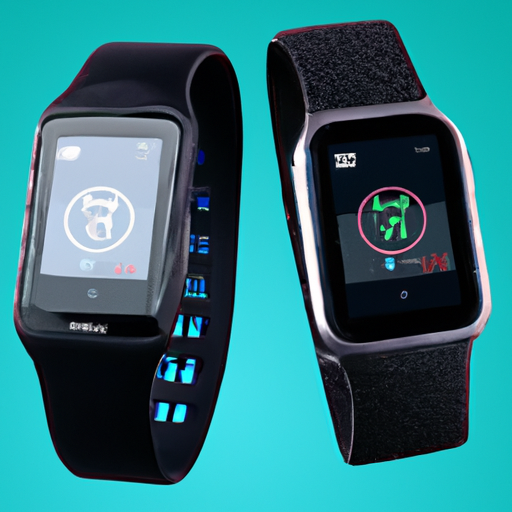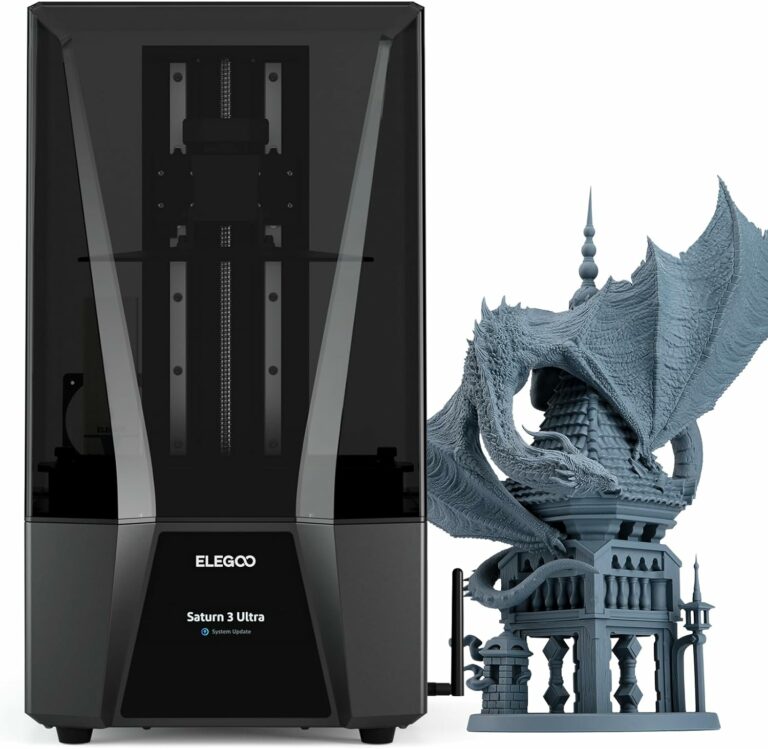In this article, we will embark on a journey into the world of wearable tech, specifically focusing on the battle between Smartwatches and Fitness Bands. With technology evolving at a rapid pace, these innovative devices have become increasingly popular among tech enthusiasts and fitness enthusiasts alike. Join us as we compare and contrast these two types of wearable devices, exploring their features, functionalities, and how they can enhance our daily lives. Whether you’re looking for a stylish gadget to keep you connected or a dedicated fitness companion to track your workouts, this article will help you navigate the exciting world of wearable tech. So, sit back, relax, and let’s dive into the wonderful world of Smartwatches and Fitness Bands!
Smartwatches
Definition and Features
Smartwatches are wearable devices that can be worn on the wrist, designed to provide convenience and accessibility to users. They have a wide range of features that go beyond telling time, such as notifications, fitness tracking, voice commands, and even the ability to make phone calls. Smartwatches often have touchscreen displays, allowing users to interact with various apps and functions.
Popular Smartwatch Brands
There are many popular brands known for their smartwatches, each offering their own unique features and designs. Some of the most well-known brands include Apple, Samsung, Garmin, Fitbit, and Huawei. Apple’s smartwatch, known as the Apple Watch, is highly regarded for its integration with iPhones and its comprehensive fitness tracking capabilities. Samsung’s Galaxy Watch series offers an impressive range of features, including a rotating bezel for navigation and a long battery life. Garmin and Fitbit are known for their fitness-focused smartwatches, with advanced tracking features and durable designs.
Advantages of Smartwatches
One of the biggest advantages of smartwatches is the convenience they offer. With a smartwatch on your wrist, you can easily receive notifications for calls, messages, and social media updates without having to constantly reach for your phone. They also provide quick access to important information, such as the weather forecast or calendar reminders. Smartwatches can also enhance your fitness journey by tracking your steps, heart rate, and even offering guided workouts. Additionally, many smartwatches now support contactless payments, allowing you to make purchases with just a tap of your wrist.
Disadvantages of Smartwatches
Despite their numerous advantages, smartwatches also have some downsides. One of the main concerns is their relatively high price compared to other wearable devices. Additionally, smartwatches often have shorter battery life compared to traditional watches, requiring frequent charging. Their smaller screens and limited app options may also make certain tasks less convenient compared to using a smartphone or tablet. Lastly, some individuals may find the constant notifications and connectivity distracting and overwhelming, leading to a sense of being always “plugged in.”
Features to Consider
When choosing a smartwatch, there are several features to consider based on your needs and preferences. Display quality is an important factor, as a clear and bright screen will enhance the overall user experience. Battery life is another critical aspect, especially if you plan to use your smartwatch for extended periods without having to recharge frequently. Waterproof or water-resistant capabilities can be crucial for individuals who want to track their swimming workouts or wear their smartwatch in various weather conditions. Lastly, compatibility with your smartphone is essential to ensure seamless integration and access to all the features and apps you desire.
Smartwatch Compatibility
Most smartwatches are designed to be compatible with both Android and iOS smartphones. However, it is important to check the compatibility of a specific smartwatch model with your smartphone before making a purchase. This is particularly relevant because certain features and functions may be limited or unavailable depending on the compatibility. It is also worth considering whether the smartwatch requires a particular version of the operating system to function properly. Overall, ensuring compatibility will guarantee that you can fully utilize all the features and functions of your chosen smartwatch.
Fitness Bands
Definition and Features
Fitness bands, also known as activity trackers or fitness trackers, are wearable devices primarily focused on tracking and monitoring physical activities and health-related metrics. These bands are typically worn on the wrist and are designed to provide a comprehensive overview of one’s fitness journey. Fitness bands often come with features like step tracking, heart rate monitoring, sleep analysis, and calorie tracking. They can also provide real-time workout feedback and even remind users to move if they have been inactive for too long.
Popular Fitness Band Brands
Several brands dominate the fitness band market, offering a wide range of options to suit different needs. Fitbit is one of the most recognizable names in the fitness band industry, known for its accurate tracking and user-friendly interface. Garmin is another popular brand, particularly known for its GPS-enabled fitness bands that cater to outdoor enthusiasts. Additionally, Xiaomi’s Mi Band and Huawei’s fitness bands provide more budget-friendly options without compromising on essential tracking capabilities.
Advantages of Fitness Bands
Fitness bands offer numerous advantages, particularly for individuals wanting to prioritize their health and fitness goals. One significant advantage is the motivational aspect. The ability to track one’s progress and set goals can greatly enhance motivation and help individuals stay accountable to their fitness routines. Fitness bands also provide valuable insights into overall health, such as heart rate monitoring and sleep analysis. Moreover, these bands are usually lightweight and comfortable to wear, making them suitable for everyday use.
Disadvantages of Fitness Bands
While fitness bands offer many benefits, they may not be suitable for everyone. One of the disadvantages is their limited functionality compared to smartwatches. Fitness bands often have a more focused purpose and may lack certain features that smartwatches provide, such as phone call capabilities or a wide range of apps. Additionally, the smaller screens of fitness bands can make it challenging to interact with the device or view detailed information. Lastly, some individuals may find the constant tracking and data feedback overwhelming or anxiety-inducing.
Features to Consider
When selecting a fitness band, there are several important features to consider. Accuracy is a crucial aspect, as you want your fitness band to provide precise tracking of your activities and health metrics. Look for bands that use advanced sensors and algorithms to ensure accurate results. Battery life is also essential, particularly if you plan to wear your fitness band throughout the day and night without frequent charging. Comfort and durability should not be overlooked, as you want a band that is comfortable to wear during various activities and can withstand everyday wear and tear.
Fitness Band Compatibility
Similar to smartwatches, fitness bands also have compatibility considerations that should be taken into account. Most fitness bands readily connect with smartphones via Bluetooth and have dedicated apps that allow you to sync and analyze your data. However, it is important to ensure that the fitness band you choose is compatible with your specific smartphone operating system. Some fitness bands may only work with either Android or iOS devices, so verifying compatibility beforehand will prevent any compatibility issues.
Comparing Smartwatches and Fitness Bands
Design and Appearance
Smartwatches and fitness bands differ in their overall design and appearance. Smartwatches typically have larger and more vibrant displays, resembling traditional wristwatches with a touchscreen. They often come in a wider range of materials, including stainless steel and ceramic, allowing for a more premium and customizable look. Fitness bands, on the other hand, are generally slim, lightweight, and minimalist in design. They prioritize functionality and comfort, with simple displays and interchangeable bands for personalization.
Functionality
One of the key distinctions between smartwatches and fitness bands is their functionality. Smartwatches offer a wide array of features beyond fitness tracking, such as notifications, app integration, and even the ability to make phone calls. They provide a more comprehensive smart device experience, acting as an extension of your smartphone on your wrist. Fitness bands, on the other hand, focus primarily on health and activity tracking, offering essential features like step counting, heart rate monitoring, and sleep analysis. They are more specialized in their functionality and cater specifically to fitness enthusiasts.
Health and Fitness Features
Both smartwatches and fitness bands excel in providing health and fitness features, but their capabilities may vary. Smartwatches typically offer more advanced health monitoring, including ECG (Electrocardiogram) readings, blood oxygen level tracking, and stress monitoring. They may also integrate with additional health apps and provide more comprehensive workout tracking options. Fitness bands, however, tend to prioritize basic health metrics like heart rate monitoring, sleep analysis, and step tracking. Depending on your health and fitness goals, one device may offer more relevant features than the other.
Battery Life
Battery life is an important consideration when deciding between a smartwatch and a fitness band. Smartwatches typically have shorter battery life due to their larger screens and more power-intensive features. They usually need to be charged every day or every few days, depending on the usage. Fitness bands, thanks to their smaller screens and more limited functionality, tend to have longer battery life. Some fitness bands can last up to a week or more on a single charge, making them more suitable for individuals who prefer not to worry about frequent charging.
Price Range
Price is a significant factor when comparing smartwatches and fitness bands. Smartwatches, with their advanced features and premium designs, tend to be more expensive. They often fall into a higher price range, particularly if you opt for well-known brands like Apple or Samsung. Fitness bands, on the other hand, are generally more affordable, catering to a wider range of budgets. While there are more expensive models available, there are plenty of affordable options that still provide reliable fitness tracking and basic smart features.
Connectivity Options
Connectivity options vary between smartwatches and fitness bands. Smartwatches often offer standalone connectivity, allowing them to connect to cellular networks and function independently from a smartphone. This means you can make and receive calls, send messages, and access the internet directly on your smartwatch. Fitness bands, on the other hand, typically rely on smartphone connectivity via Bluetooth. They sync with dedicated apps on your smartphone to provide comprehensive data analysis and storage. This dependency on a smartphone may be a consideration for those seeking a more standalone device.
Choosing the Right Wearable for Your Needs
Determining Your Priorities
When choosing between a smartwatch and a fitness band, it is crucial to determine your priorities. Consider what features are most important to you and how you plan to use the wearable device on a daily basis. If you value a wide range of smart features, such as notifications, app integration, and phone call capabilities, a smartwatch may be the better choice. On the other hand, if you primarily want accurate fitness tracking and health monitoring, a fitness band may be more suitable.
Considerations for Fitness Enthusiasts
For fitness enthusiasts, a fitness band may be the ideal choice. These devices often focus on providing comprehensive fitness tracking features, including step counting, heart rate monitoring, and sleep analysis. Look for fitness bands with advanced sensors and algorithms to ensure accurate tracking of your workouts. Consider whether you want GPS capabilities for outdoor activities or specific sport modes for specialized tracking. Additionally, battery life and water resistance are significant considerations for fitness enthusiasts who engage in long workouts or activities in diverse environments.
Considerations for Tech Enthusiasts
Tech enthusiasts who prioritize a wide range of smart functionalities should consider smartwatches. These devices provide more advanced features beyond fitness tracking, including notifications, app integration, and even contactless payments. Look for smartwatches that offer seamless integration with your smartphone and have a user-friendly interface. Consider whether certain operating systems or app ecosystems are more appealing to you. Advanced health monitoring features like ECG readings or blood oxygen level tracking may also be of interest to tech enthusiasts.
Considerations for Style-conscious Users
For individuals who prioritize style and fashion, both smartwatches and fitness bands offer options to suit personal preferences. Smartwatches often come in a wider range of materials, including premium options like stainless steel and ceramic. They may also offer interchangeable bands, allowing you to easily switch up the look of your device. Fitness bands, on the other hand, prioritize lightweight and minimalist designs, making them suitable for everyday wear. Look for fitness bands with bands in different colors or designs to match your style.
Future Trends in Wearable Tech
Integration with AI and Voice Assistants
The future of wearables will likely involve stronger integration with artificial intelligence (AI) and voice assistants. This means that wearables will be able to perform more complex tasks and provide personalized recommendations based on individual preferences. With AI integration, wearables may be able to learn your habits and patterns, making proactive suggestions to improve your health and well-being. Voice assistants will further enhance the usability of wearables by allowing users to interact with their devices using voice commands, making them more intuitive and user-friendly.
Advanced Health Monitoring
Wearables will continue to advance in terms of health monitoring capabilities. Advanced sensors and algorithms will provide more accurate and detailed health insights, enabling wearables to detect and monitor a wider range of health conditions. This could include monitoring vital signs, stress levels, blood glucose levels, and even detecting early signs of specific diseases. The ability to provide real-time feedback and personalized health recommendations will empower users to take control of their health and make informed decisions.
Improved Battery Life
Battery life has always been a limiting factor for wearables, but future advancements in battery technology are expected to address this challenge. Longer-lasting batteries will allow users to wear their smartwatches or fitness bands for extended periods without the need for frequent charging. This will greatly enhance the usability and convenience of wearables, making them more reliable and suitable for individuals with active lifestyles.
Enhanced Design and Fashion Integration
As wearables become more mainstream, design and fashion integration will play a significant role in their adoption. Wearable devices will continue to evolve in terms of aesthetics, offering sleek and stylish designs that can seamlessly blend with everyday fashion. Collaboration between technology companies and fashion brands will result in wearables that not only provide advanced functionality but also serve as fashionable accessories. Customizability and interchangeable bands or straps will allow users to personalize their wearables to match their style and preferences.
In conclusion, the world of wearable tech continues to evolve, providing users with smartwatches and fitness bands that cater to their specific needs and preferences. Smartwatches offer a wide range of features, including smart functionalities, while fitness bands prioritize health and activity tracking. When choosing the right wearable for your needs, consider your priorities, whether you are a fitness enthusiast, tech enthusiast, or style-conscious user. Future trends in wearable tech point to integration with AI and voice assistants, advanced health monitoring capabilities, improved battery life, and enhanced design and fashion integration. With so many options available, there is a wearable device out there that will suit your lifestyle and help you in achieving your goals.







